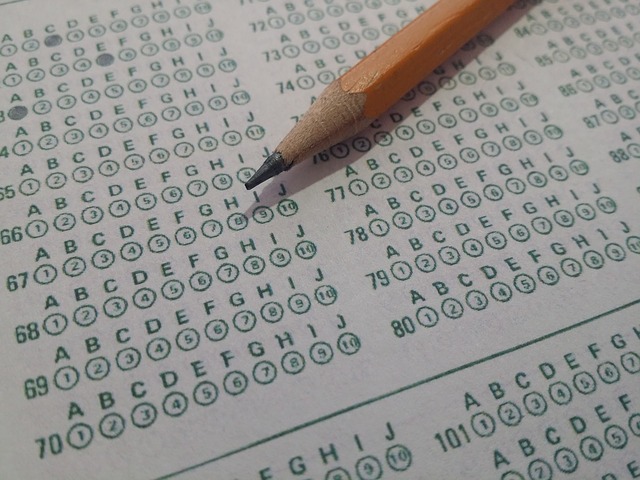Test-Optional Does Not Mean Test-Blind

The dramatic headlines, societal anxieties, and policy ambiguities that have so thoroughly characterized public health messaging in the COVID-19 era have likewise left an outsize mark on higher education. Wend your way through the current state of academia, and you’ll find uncertainty around every corner. How severely will the current economic crisis reduce applications and enrollment rates? How can campuses—densely populated and explicitly designed for hyper-sociability rather than social distance—maintain healthy student, faculty, and staff populations while still providing high-quality educational experiences? These questions represent only the tip of an iceberg that plunges extraordinarily deep, extending even to those students who are on the cusp of seeking admission. Their ability to raise their profiles has been stunted by school closures, which have impacted not only grading systems and extracurricular opportunities, but also key college admissions rites of passage: the ACT and SAT.
As of this post’s publication, millions of students’ tests have been canceled, and just when regular testing will resume is not clear. (Though the ACT still plans on running its June test, the organization is leaving it up to local authorities to decide whether that is possible.) Acknowledging that a large percentage of their prospective applicants might be unable (or unwilling) to test in time to meet application submission deadlines, a handful of colleges and universities have announced test-optional admissions policies for the 2021 admissions year. To communicate such a significant departure from the norm, education writers began using words like dropped and scrapped with respect to the exams. Predictably, a social media “game of telephone” ensued, creating even more uncertainty for parents and students to navigate. Who could blame students for asking whether they still should take the test, or what would happen if they didn’t?
To understand what COVID-19-related “test-optional” policies mean, it’s important to understand what they do not mean for college and university admissions offices that adopt such policies.
- They do not mean that the ACT and SAT have been eliminated or banned.
- They do not mean that students cannot submit their ACT and/or SAT scores with their applications.
- They do not mean that students shouldn’t submit their ACT and/or SAT scores if they believe their scores indicate strong academic ability.
- They do not mean that admissions committees will not consider the ACT and/or SAT scores of students who choose to submit them, and thus do not mean that scores won’t confer an advantage in the admissions process.
Indeed, some schools that have adopted test-optional policies for the coming admissions year have created dedicated web pages to clarify what they mean for prospective applicants. Take the example of Cornell University, the first institution in the Ivy League to announce such a move.
For those who have taken, or who can take, ACT and SAT exams
Cornell overall has not planned to adopt a test-optional admission policy permanently. As appears to be true at test-optional colleges and universities, we anticipate that many students who will have had reasonable and uninterrupted opportunities to take the ACT and/or SAT during 2020 administrations will continue to submit results, and those results will continue to demonstrate preparation for college-level work.
(Source page linked above; italicized text represents my own emphasis.)
Likewise, Tufts University has clarified its own policy—a three-year pilot of test-optional admissions.
Standardized Testing: Beginning with students applying for fall 2021 admission, applicants have a choice about whether or not to submit SAT or ACT scores to be considered for undergraduate admission to Tufts University. If applicants would like us to consider their exam results as one component of their candidacy, we will do so in a nuanced and contextual way. If students choose not to submit exam results, we will evaluate their candidacy in a nuanced and contextual way without scores. Our holistic, committee-based approach to application review provides us with the flexibility to evaluate academic and extracurricular accomplishments within a student’s individual context.
(Source page linked above; italicized text represents my own emphasis.)
It’s also worth considering academic scholarship awards, which have long been tied to academic standing and standardized test results, among other applicant attributes. Here's what Texas Tech specifies.
Due to the decision made by the College Board and ACT to suspend the availability of testing during the COVID-19 virus pandemic, prospective students applying for admission to Texas Tech University for the Fall 2020 term will not be required to submit an ACT or SAT score. Applicants who have completed all other application requirements, will be given special consideration for admission through a holistic review.
A student who has previously taken an ACT or SAT and has a score is strongly encouraged to submit them to us for evaluation. We also strongly recommend that all students have a standardized test on file prior to enrollment. Without a standardized test, a student will not be considered for scholarships. Lack of an SAT or ACT score may also affect meeting Texas Success Initiative exemptions and course placement.
(Source page linked above; italicized text represents my own emphasis.)
Thus, a bit of analysis reveals that words like dropped and scrapped—even when accompanied by words like temporarily—lack nuance and can generate misunderstanding. Students who see broad-strokes headlines and figure they can do without testing—even once it resumes—may be right in some cases; by doing so, however, they may lose the opportunity to highlight their skills, compete for scholarship dollars, and enhance their overall admissions profiles. In short, “test-optional” does not mean “test-blind.”
If you’ve found your way to this post, you’re likely aware that I—a test prep tutor and partner at Method Test Prep—am not an unbiased party. It is obvious that my organization stands to benefit from continued ACT and SAT testing. But I do not want my motivations to be misconstrued. To be clear, I strongly believe that public health priorities are far more important than the resumption of testing; in turn, I believe it is wise for colleges and universities to adopt test-optional admissions policies until safe testing can resume. Furthermore, relieving students of undue pressure during a time when their academic—and in many cases, personal—lives have been upended is the morally correct thing to do. I am writing to inform and to clarify, in hopes that students and parents will take with a grain of salt whatever they’ve read on social media, seen in newspaper headlines, or heard from friends. As is the case with most issues, the test-optional issue is not black and white.


